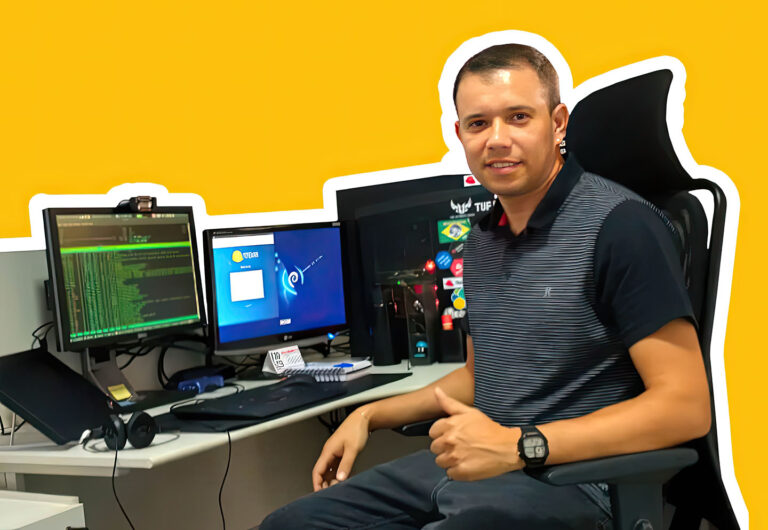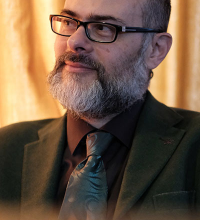A Journey With Linux and Open Source: Bruno Alves

Welcome to another edition of our Share Your Voice series! Today, we have the pleasure of chatting with Bruno Alves, a seasoned Senior Linux System Administrator and DevOps Engineer with an impressive 13 years of experience. Bruno holds the LPIC-3 Security certification, highlighting the significant value he places on LPI’s certifications in his career journey. Let’s delve into his expertise and insights in the world of Linux and open-source technology.
What was your initial introduction to Linux and open source software, and what ignited your fascination with them?
My first encounter with Linux was during a computer class back in 2006. Our teacher passionately explained the wonders of Linux, the vibrant open source community, and how people collaborated to maintain these projects. The idea of such a collaborative and powerful operating system intrigued me, sparking my curiosity to give it a try.
As a dedicated Windows user at the time, transitioning to Linux wasn’t without its challenges, but my determination drove me to install Linux on all my computers, preparing myself for this exciting new journey. Interestingly, my enthusiasm influenced my mom to learn Linux as well, and now she can perform simple tasks on the system too!
How has your career and personal life been affected by Linux and open source software, and what doors have they opened for you?
Talking about my career, I decided to work with Linux around seven years ago. In order to get into this position, I followed the LPI content path for my studies. Getting my LPIC-1 certification in 2016 opened doors for me to work as a Linux system administrator.
Throughout these years, maintaining a mindset to keep improving, I wanted to get my LPIC-2 and LPIC-3 Security certification. By choosing this speciality, I can satisfy a wider range of business needs on a daily basis. I could see a high demand for this skill on the job market too; that persuaded me to follow this path. In the near future, I would like to get the Virtualization and Containerization specialty too.
I am immensely grateful for the path I chose and the incredible impact Linux has had on my life. Thanks to Linux, I now enjoy a better quality of life, living in a small city and having the flexibility to work from home.
I want to share a valuable tip with everyone: Invest your time in LPI Learning Materials and obtain your certifications. It will significantly enhance your visibility in the job market, opening up numerous opportunities for you!
The knowledge gained through LPI certifications is directly applicable in daily work as a Linux system administrator, making it even more rewarding. Embrace this journey, and the rewards will be beyond your expectations.
Do you want to tell us a bit more about what motivated you to pursue an LPI certification, and the positive impact it has had on your career?
When I considered a certification that encompassed a wide range of distributions, without being tied to any specific one, LPI immediately came to mind. It was the perfect choice as I sought to become a certified professional and secure a Linux System Administrator position: I needed something “distro-independent.” The global reputation and high regard for LPI made its certifications the ideal credentials for me, ensuring recognition as a competent professional no matter where I wanted to work. LPI has truly opened doors to exciting opportunities in the tech industry for me.
What approach did you take to prepare for the LPI certification exams, and what tips do you have for those contemplating certification?
To prepare for the exams, I dedicated daily study sessions and set a clear deadline for the exam date. I made sure to track my progress and the specific topics I needed to review thoroughly to cover all exam content. LPI’s Wiki comes very handy for that.
Success came through effective planning and consistent effort – a combination of planning and action. Equally important were maintaining a positive mindset and a strong determination to achieve the certification. These principles guided me to success, and they can do the same for you. Keep your goals in focus, stay positive, and embrace the journey towards certification.
Balancing stability and innovation is crucial in mission-critical systems. How do you navigate this challenge while actively participating in the open source community?
In navigating the challenge of balancing stability and innovation while actively participating in the open source community, we – as a team, and as the community itself – encounter various scenarios to implement, review, and fine-tune systems in our environment. Embracing best practices, we prioritize mission-critical systems with well-planned deployment methods, such as the blue-green or canary approach, minimizing or eliminating downtime.
The cloud and containerization have emerged as powerful allies, enabling us to maintain innovation and experimentation while modernizing our workload. Employing „Infrastructure as Code“ tools, we deploy new infrastructures across regions or accounts with minimal effort, replicating Production workloads in Developer environments. The open source community provides invaluable assistance through extensive documentation and supportive forums, guiding us through challenging situations.
One recent project that exemplifies community collaboration involved deploying TheForeman to manage our Linux servers and automate the provisioning process. Engaging with TheForeman’s community, I gained insights into resolving issues and better understanding the application. Sharing solutions and helping others facing similar challenges reflects the true spirit of collaboration within the open source community, enhancing its collective strength and empowering its growth.
The rise of cloud computing and containerization has revolutionized the use of Linux and open source software. How are you adapting to these transformative changes?
As I mentioned before, the rise of cloud computing and containerization gave us the opportunity to improve the deployment process, bringing scalability and reliability. Linux usage was increased together with cloud adoption, since containerization was native to Linux many years ago with LXC. Whoever was using Linux and familiar with containers at that time was at the top of the wave and could predict a high demand for professionals with this knowledge.
What are your main responsibilities in your current position, and which key tools are indispensable to your workflow?
Today I’m a Senior Linux System Administrator at Stoneridge,Inc., and help them to manage their Linux Systems by bringing DevOps tools and culture, automation, and security best practices in a high-scale cloud environment. Today I’m working with AWS as a cloud provider, Terraform to automate the cloud deploy process, Puppet and Ansible for item configuration, theForeman for provision and server management, a lot of bash scripts, etc.
When nerds take a break from nerding, how do they unwind and enjoy their leisure time?
Beyond the computer world, I find joy in caring for my pet birds. Holding a national license to nurture wild species domestically, I contribute to preserving and growing their populations. This effort helps mitigate the decline caused by loss of natural habitats and illegal capture in the forest.
During my leisure time, I indulge in playing retro video games, relishing the 8-16-bit era (NES, SNES, Master System, Game Boy), and also exploring the 32-bit world with PlayStation 1 and 2. For current console gaming, I’m engrossed in the Nintendo Switch.
Amidst the pandemic days, I stumbled upon an intriguing hobby—listening and exploring short-wave radio stations. Through a simple radio device, I can tune into music and news from diverse corners of the globe, a truly amazing experience. However, the reception varies with weather conditions and other factors.
With my family, I love venturing into nature, exploring quaint countryside towns over weekends alongside my wife, Bruna. These adventures allow us to delve into local culture, savor delightful gastronomy, and create cherished memories together.
